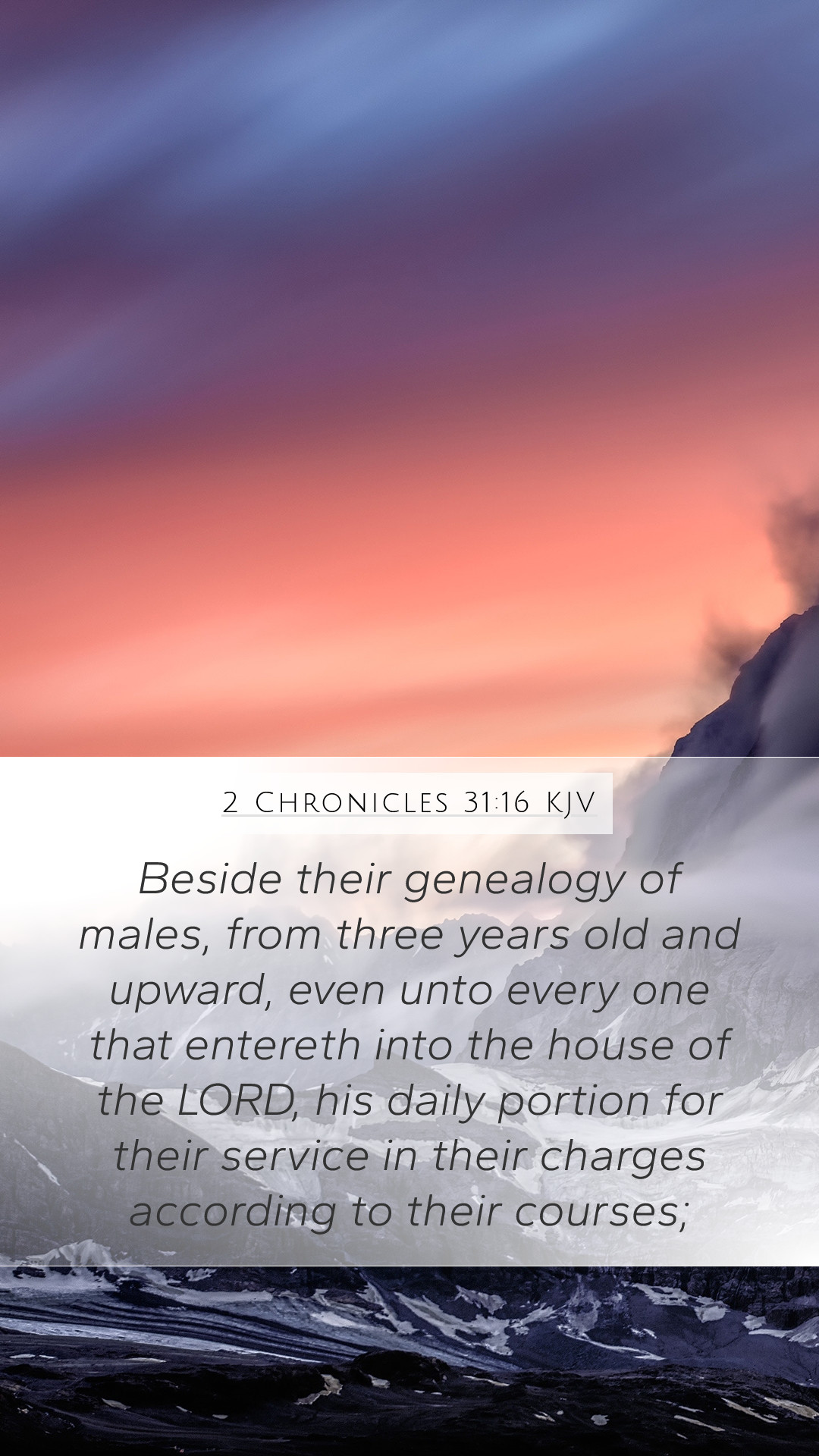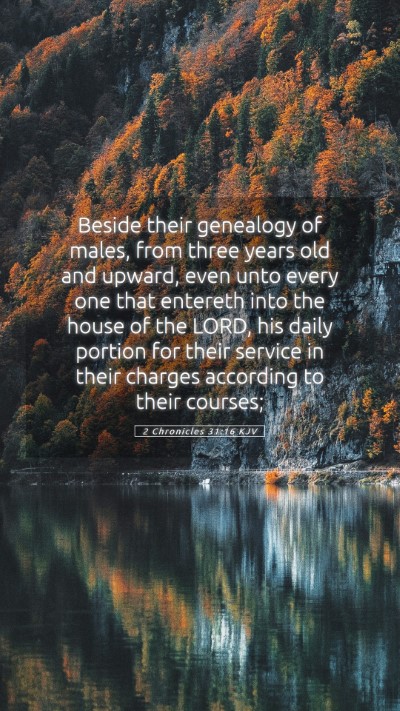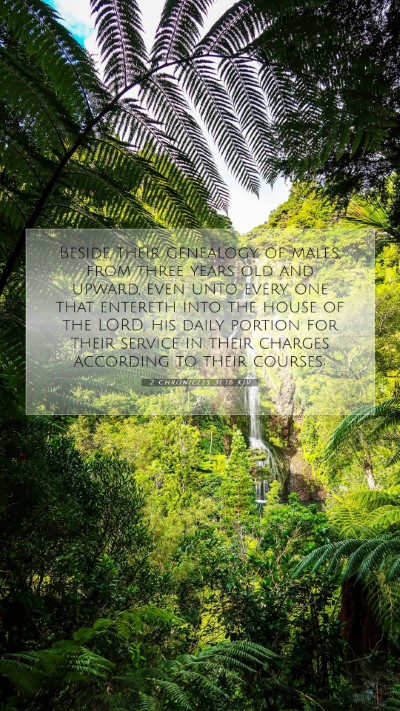Understanding 2 Chronicles 31:16
Bible Verse: 2 Chronicles 31:16 states, "Besides their genealogy of males, from three years old and upward, even unto everyone that entereth into the house of the LORD, his daily portion for their service in their charges according to their families." This verse provides insight into the organization of temple service during King Hezekiah's reign and highlights the importance of proper worship and service to God.
Bible Verse Meaning and Commentary
This verse, which emphasizes the order and organization in worship, holds various interpretations and insights drawn from esteemed public domain commentaries.
Matthew Henry's Commentary
- Matthew Henry notes that the organization was crucial for ensuring that all who served in the temple had their roles clearly defined. This not only maintained decorum but also facilitated efficient worship.
- He emphasizes that the temple service was to span all ages, illustrating that worship is inclusive and integral to the community.
- Henry points out the significance of being mindful of one’s genealogy in this context. It denotes the importance of legacy and heritage in serving God.
Albert Barnes' Commentary
- Barnes highlights the systematic approach taken by the priests and Levites in their duties, which he believes was essential for the proper functioning of the temple.
- He explains that the term "daily portion" refers to the regular allocation of offerings and duties, reinforcing the notion that serving God is an ongoing commitment.
- Barnes mentions that the age specification from three years old reflects the Jewish practice of initiating children into worship and duty early, which builds a robust connection with their faith.
Adam Clarke's Commentary
- Clarke discusses the cultural significance of genealogies in ancient Israel, highlighting how they were a means of establishing one’s place and role within the community of believers.
- He comments on the structure of service as a reflection of God’s order, teaching that worship must not be haphazard, but rather approached with seriousness and dedication.
- Clarke also brings attention to the fact that every family had a role in the temple service, indicating that participation in worship is a communal effort, essential for spiritual health.
Significance and Application
The significance of this verse can be drawn to various applications in today’s context. Understanding the structure and system in service can guide modern believers in:
- Participating in church life: Engaging in activities and services in a meaningful and structured manner enhances the worship experience.
- Recognizing the importance of tradition: Acknowledging one’s heritage and community can foster a deeper connection to faith practices.
- Committing to daily worship: Just as the temple service was regular and defined, believers are reminded of the value of consistent personal and communal worship.
Cross References
This verse connects to several other scriptures, demonstrating a theme of organized worship and community involvement:
- 1 Chronicles 23:24-32: Discusses the division of service among the Levites.
- Exodus 30:16: Instructions about the atonement for the souls in the census of Israel.
- Luke 2:42: Jesus’ participation in religious practices as a child, fulfilling Jewish customs.
Conclusion
2 Chronicles 31:16 beckons believers to explore the intricacies of worship, emphasizing structure, tradition, and commitment. These insights provide ample opportunity for Bible study insights and foster a deeper understanding of Scripture in both personal and communal settings. This verse serves as an essential reference point in understanding how the practice of worship can be both a personal endeavor and a collective responsibility.


